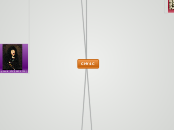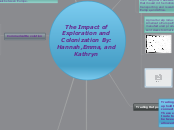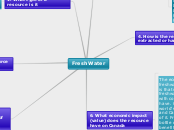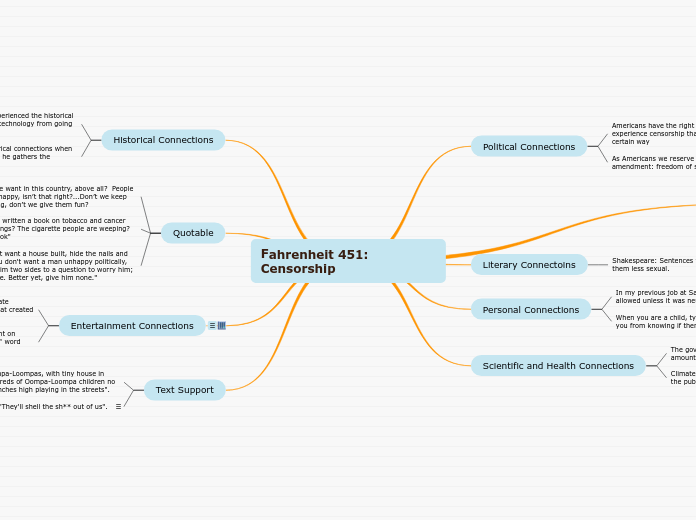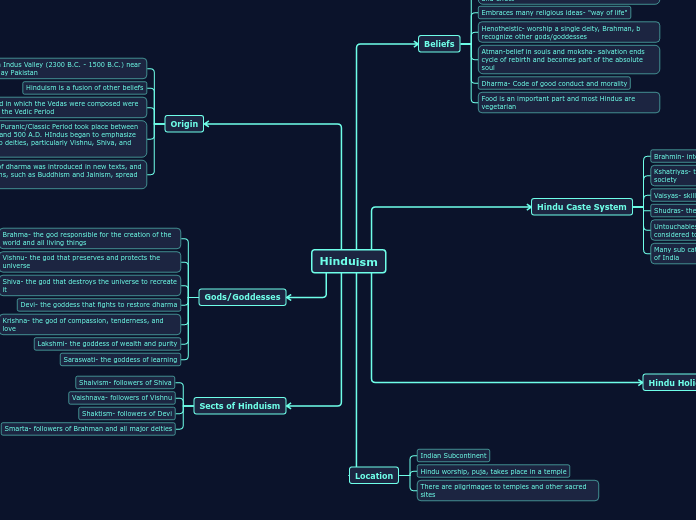CHY4C
European Relations with the
Rest of the World
Russia
Russia was at constant war with the Ottoman Empire
The Europeans considered russians as savages, because
they acted like Asia
Czar peater created a army by conscripting peasants
Russians were associated with the Eastern orthodox church
Empire of Czar
Ottoman Empire
Gunpowder was essential in overcoming local resistance
Rapid expansion empire, they were feared by
European boarders
The Empire was well organized and resillant
Islam arose in Arabia which it limited agriculture and forced inhabitants to adopt a nomadic, pastural way of life within socail equality
The Arabs learned to use canals for trade which connected Yemen, Syria, Mesopotamia and Persia
Muhammed created new religion which emphasized, general
themes such as monotheism, individual accountability and compassion for the poor and the weak
In 610 Muhammed claimed to be chosen are and
God's messenger
Believed in a single all powerful god who was
responsible for create the world
Turks migrated from Asia to the middle east where
they converted to Islam
East Asia
No European power ever managed to establish a meaningful
trade with chinese (due to there strict relations on foreign affairs)
The separate states created the great wall
Jiaquing Emperor of China saw foreign traders as a threat
The orient was supplying Europe with spices,
skills and herbs
Portuguese traded spices with Indians and wanted
to trade with the Chinese
The orient was supplying Europe with spices,
skills and herbs
China does not want to interact with the west
The first unified Empire was created by the
Qindunasfv in 202BC
India
Europeans became involved in local politics
Fragile empires established
Portuguese weren't a threat to Indians and were granted
permission to trade (by the rulers)
Britain was the most important presence in India for 200 years
Portuguese were the first to come to India for trade in spices
Inspired others to follow
Women did not rule but they were strong political influences
Hinduism is the main belief system
Complex mixture of Indian, Persian, Asian
customs/belief systems
Africa
Europeans introduced civil wars with African
kingdom, in order to take prisoners as salves
Africans constantly fought back, some would commit
suicide, stop eating, or try to take control of ships
Why was the area of interest to the Europeans
(Role of trade/economy)
Europe only captures people on the coast of Africa,
because it was seen as too dangerous to go deeper in
Trade slaves or obtained them for selling grades, such
as: Horses, gold, spices and perfume
1518, the first transience slave trade. When Africans
arrive in the Caribbean
Africans took some Europeans as trade
Slavery always existed
Tended to be prisoners of war/criminals
Used religion as a way to justify slavery
The Americas
Relationship With Europeans (Political, military)
Newly discovered lan led to Treaty of Tordesillas
Their political structure included tribes,
chiefdoms, states, and empires
Law system was present, used in terms of Imperialism
Why was the area of interest to the Europeans
(Role of trade/economy)
Europeans were taken capture by aboriginal people of America. Aboriginal alliance tried to fight colonists, this war lasted a little over a year (Economy suffered)
Fur trade was big in New France and Algonquin
allies would meet them in Montreal with Pelt
Life Before Europeans (Social, Religion)
The English began colonizing the Americans
in 1607. Starting with Virginia
95% decline of 25 million population
(European decreases had a major part)
Race was a legal status
Absolutism
King Louis VIV (1643-1715)
Symbol for new spin in French culture church was
replaced with national pride
Hatred of nobles and common people
Louis was building Versailles almost all his life
Louis XIV was the builder and planner of the masterpiece
Build under his dearest care
Versailles was under construction till his death
Always had new ideas
Was a large supporter of arts
Absoluted ruler - moved the court
Against protestants
Economically exhausted after 30 years of war
Chose the sun as his emblem
Apollo - God of peace and arts, also there heavenly body which gave life to all thins
Child king took throne at age four
The House of Stuart
Mary Queen of Scotland
James I (1603-1625) aka James VI of Scotland
Ruled as a tyrant
Had conflicts with parliament
Was not a popular king
A catholic, authorization of the King James version of the bible, and as the "Wisest Fool in Christenatm"
Elizabeth is death, James was her heir
Son of Mary Queen of Scots
Elizabeth had her executed for treason, Spain attacked but the Armada failed
Catholic english supported her succession over Elizabeth
When Francois II died, she came back to be Queen of Scotland
Daughter of James V and destined to be the Queen of France
Henry VIII niece
The House of Tudors
Henry VIII (1509-1547)
Henry died in January of 1547
Henry's six wives
Catherine Parr
Made attempted to get all his children together
Large impacted on Henry, he was influenced by her
Highly educated and deeply religious
Henry's VIII six wife
Catherine Howard
Beheaded due to adultery
A seventeen year old
Henry's VIII fifth wife
Anne of Cleves
Annulled on July 9th, 1540
Political alliance with Lutheran Germany
Henry's VIII fourth wife, a German princess
Jane Seymour
She died of a fever - childbirth
Queen did finally have that male heir, Edward VI
Edward VI (1547-1553)
He was sick and died at the age of 16
King at age of nine in 1547 (called Boy King)
A protestant
Henry's VIII third wife
Anne Boleyn
Elizabeth I (155-1603
Brought England to the position of world power with the defeat of the Spanish Armada
Patron of the arts and literature (education)
Advanced exploration and foreign trade
Decline in religious wars
Refused marriage (virgin queen)
Became England's greatest leader
Last tutor monarch, reigned for 45 years (Golden Ages)
Daughter of Henry VIII and Anne Boleyn
Many catholics felt that her child Elizabeth was ltlegitmate
Henry had her changed with adultery and incest and beheaded
Henry's VIII second wife
Catherine of Aragon
Mary (1553-1558)
She died of a tumour
Known as "Bloody Mary" for the number of people executed for being protestant (300 killed)
Married Philip II of Spain
Attempted to restore Catholicism and return England to Rome
First Queen Regnant
Reigning because she is heir rather than marriage
Daughter of Henry VIII and Catharine of Aragon
Was the daughter of Isabella and Ferdinand of Spain
Relates to Reformation
Church had a lot of money and land if Henry VIII separates from the Catholic Church he will get such thing, removed country from Catholic Church to Protestant
Creates Church of England (Protestant Church), and splits ties with the Roman Catholic Church
Historically called most dreadful and famous kind of England
Tries to annual his marriage so he can marry Anne Boleyn
Spain and Germany wanted to take alliance even after Arthurs's death - Married Arthurs widowed wife, Catherine of Aragon
Henry VII (1485-1509)
Forged international relationships through marriages
of his children
Subject had a religious duty to obey
Religion is still a basis of structure
Rulers represented God's well
Monarchs (blood lines) claim the right to rule by divine right (God/supreme being)
Reformation
The Protestant Reformation
Catholic Reformation
Roman Index of Prohibited Books
Biased opinions used to declare people as heretics and
declare books as heresy
Any book deemed inappropriate would be burned
Burning of books = Nazi Germany (form of control)
Tired to control and review all books and pamphlets
being published
Another tool used by Church to enforce conforminty
Roman Inquistion
Proven since that many innocent people died at the hands of the Inquisition
Enforced conforminty
Had biased opinions - strict Christian code
Purpose to discover and surpass heresy and to punish heretics
Has to insure Bishops were properly trained (educated)
Pushed Bishops into cities to strengthen authority so they had more control
Created system of reliance - keep control of followers
Decided everything was to be communicated in Latin
Not everyone spoke Latin
Gave Rome strict power of Religious doctrine (religious teachings)
Papal Reform
Council of Trent
Reform Commission (1537)
Determined Church's problems = corrupt pope/policies
Pope Paul III
The Jesults - "Army of the Church"
Restored Catholicism (Europe and World)
Responsible for spreading the word of God
Catholic run schools (open to anyone)
Used education to spread their message
Religious order depicted to the pope
Martin Luther
Lutherism - own interoperation of the bible
Peasant Revolts
Peace of Augsburg Treaty (1555)
Start of a monarch age begins to show
German princes united under Luther
Publicy declared their support under Luther's teaching because they know have the support of the peasants
Peasants revolted against nobility and clergy
They could not afford a Christian life
If they sinned they could not afford to pay the Church
to get forgiveness and a pass to heaven
They supported Luther
Luther "disappeared"
June, 1524
Luther - Reformation
All Luther's works were burned
Luther is excommunicated and defrocked (banned from the
Church and stripped of his potation as monk) in 1521
Luther refuses to take back what he said about the Church
He did not intend to break with the church he just
wanted to reform
Major Contributions of Luther and the Reformation
Caused Catholic Church to consider reforms
Abolition of vows of celibacy for Protestant clergy
Opened door to religious freedom
Only priests could read the bible and their interoperation of it, and made their own relationship to God
Translation of the Bible into German
Before only monks and educated people
could read the bible in Latin and Hebrew
Luther's 95 Thesis
"Christians should be taught that he who sees a needy person and passes him by; although he gives money for pardons, wins for himself not Papal indulgences but the wrath of God."
If you do one good deed it will not relive your sin, and it does not help the person in need just makes you feel better
"It is mere talk to preach that the soul flied out immediately the money clinks in the collection box."
The church is just telling you the money will save your soul but it will not make you a better Christian
Printing Press was a huge impact
Considered a Heiratic even if you just read the Thesis
Allowed people to read what Luther is writing
Print mass amount of text for cheap
95 Thesis spelled out the abuses of the church
October 31, 1517
To obtain salvation
Faith in God alone will earn salavtion
Religion is about our personal connection to God
Conflicted by the difference in Catholic teachings/
practice vs. what was said in the biblee
A monk and professor of theology
Salvation ("How do I get to heaven?")
Obtaining Indulgence
Rather than confess your sins just pay the church
and get a "pass to heaven"
Indulgences (money) were buying a pass to
salvation (heaven)
Veneration of relics
Reasons for the Reformation
Monarchy - Rid kingdom of Church taxes, property,
and political influence and take them as their own
Kings and Queens separate from Church to gain taxes
Smaller autonomous cities/republics wanted
to run own affairs in a modern way
Politics were changing and effecting religion
Commoners believed that upper levels
of churchvwere wealthy and oppressive
People began to question God
Erasmus aka "The Philosophy of Christ"
His beliefs of Christianity
Focus inward = themselves (morals)
Connection to God
Religion is more than just a set of rules, people
having the ability to reflect on themselves
Role of Christianity in people
Reading for yourself = more pious
(having strong religious feelings)
Human beings able to reason and improve selves
The Printing Press
Allowing for mass text
Education (high class)
Change society, must first change humanity
Northern Renaissance
Goal was the reform the Catholic Church
Christian Humanism
As the Renaissance moved Northward, so did it's ideals
What is the Protestant Reformation?
Reform = making changes
Reformation happens at different places at
different times in Europe
The name given to the spiritual/religious reform
movement that divided the Western Church into
Catholic and Protestant groups
Renaissance
Was the Renaissance a time period
of revolutionary change?
Science
Renaissance gave birth to several intellectual
movements that eroded the legacy of medieval thought
Magic drained away (Demystification)
Material Philosophy (matter objects, over mind)
Formal skepticism
Better translations of Greek mathematics,
astronomy geography, medicine and natural science
Politics
Embassies were established with resident
ambassadors, commercial relations were
fostered, and alliances were formed and dissolved
Republican governments involved into
regimes ruled by despots or oligarches
Religion
Humanism played a direct role in sparking the Reformation
The Renaissance eva was the revolutionary a
break within the Roman Catholic Church
Religion formed a social ethic through preachers,
teachers, censors and church courts which
supported social control
Religion had three crucial tasks
and Community
Salvation: What happened to them was
from them sining and that would determine
their fate
Providence: They found comfort in the
thought of God looking over them
Art
The Renaissance began the modern notion of art
as representative of the world external to us,
depicting the human condition
Naturalism became popular, painting the natural
form, and using more detail
Leonardo Da Vinci's "Last Supper" has a very
human Jesus, seeing the divine in the ordinary
Leonardo Da Vinvci was the Renaissance man
He worked with art, science, philosophy and literature
The Renaissance was the Artistic Revolution
The classicism of the renaissance revived
interest in the nude human form
The first free-standing life-size statue since ancient
times was Donato Donatello's (1386-1466)
The ideals of classicism
Proportion, orders, harmony, symmetry, and the ideal themes
Medieval art was inspired by religious belief and
authority
It reflected Christian values and the history of Christianity
A religious focus gave Christianity its "face"
Christian artists painted the world around them
Artists were viewed as 'Geniuses who changes the
way people view the world
Church continued to be main purchases of art
Transformed Western ideas of art and changed the
status of artists until this day
Dangerous Beauty Movie
What is the role of religion during the Renaissance?
Inquisition
Witch trials
The plague
God's wrath
What is the role of education during the Renaissance?
Humanism played a major role in education
The more educated the better - education was valued
Poetry and literature made a strong apperance
Describe the social hierarchy during the Renaissance?
Poetry and literature made a strong appearance
The nobles, the merchants, the tradesmen
and the unskilled workers
Who holds "power" during the Renaissance?
The power is determined by social status and
family, it was within the hierarchy (king)
What is the role of women during the Renaissance?
No political rights
For royalty, make an heir to the throne
Duties of a housewife
They had to marry
"The Renaissance" or "Rebirth"
Civic Pride and Humanism
People felt loyalty to their political and social
community print
Johanne Gutenberg (1397-1468)
Usually only males could read and write
Promoted language, fostered news and
propaganda, encouraged literacy and
scholarship, lowered barrier
Books went from rare to common and
expensive to cheap
Humanists stressed the importance of education
for children, education was to be...
Trade
Power shifted and regimes were ruled by
individuals with power or oligarchs
Modern business; such as book keeping, generating
letters of credit, system introduced money and credit
City states help supreme religious authority
Merchant class often predominated
Italian city states - Banking centres and economy
changed from land to take, credit and opening of markets
Adanced shipbuilding and navigating techniques
Cities such as Venice, Pisa, Milan and Florence
during this period
Occurred in Florence, Italy, Italy was commercial
bridge between west and wealthier World of Asia
Humanism
Valued knowledge for its own sake, guide to personal
and political conduct, however did not abandon Christianity
Renaissance Man
"Independence of mind", a person who mastered all
areas of art and thought, becoming a "Complete man",
humanity was the world they lived in, "Mans fate could
be controlled and improved", da vinci was only person
to be "Complete man".
Stressed living in world, human dignity, being responsible
Humanism reveal of Greek and Latin classics - Viewed
classics as literature, philosophy and art
The Power of the Church
The Black Death (1347-1351)
Many thought it was punishment of God
Killed between 25-45% of population
Began in Asia (China) covered by fleas which
lived on backs of rats
Spread faster due to, increasing trade
Beginning 1200's, person accused of heresy was
trailed, in religious court called an Inquistion
Punishments included; Seizure, destruction of
property, banishment, torture, and death
(such as burning at the stake)
Inquisition those who confessed received
milder punishment
Heresy is belief that is apposed to teaching
of the church
Christendom
Pope ruled Christian church
Church was often the only way to get an
education - biased Christian education
Christianity was the most important influence
Feudalism
Villages were not allowed to leave village
without permission only case many be
women for marriage
Economic system -> based on agriculture
System of loyalties and protections
Middle Ages to Renaissance
Strong belief in Christianity
Life during the middle ages were hard
Hygiene, Security, and Tax
Illness (Closed courters)
Structures (Houses)
Medieval (latin term) = dark ages
Next 1000 years were called the middle ages
Fall of Rome -> End of ancient history
